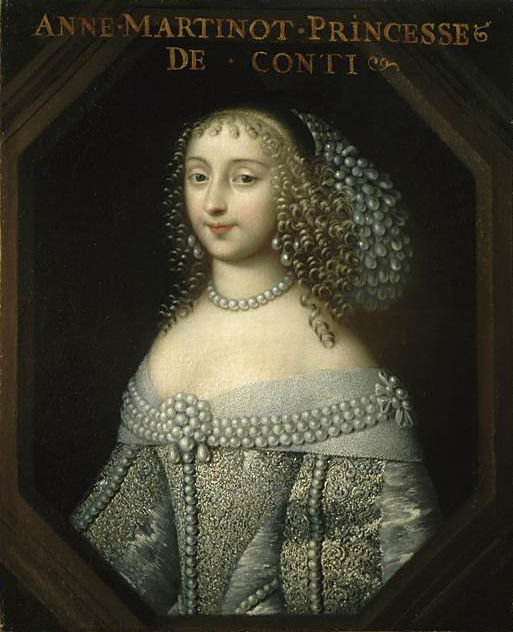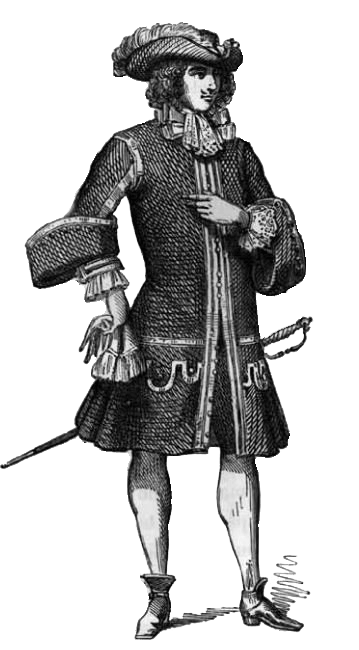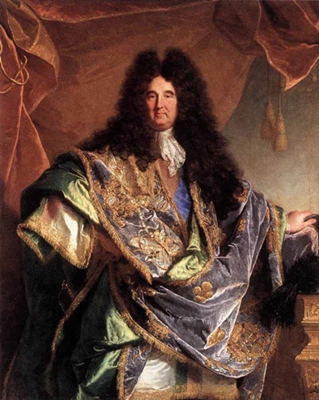Dangeau’s Diary, February 1685

4th. – Madame de Montespan has this day returned from Paris, where she had passed two or three days during her absence, the King went every evening after supper to Madame de Maintenon’s. I learn that the Dauphine named, at the commencement of the ball, those who were to lead off the dance with the Princesses of the blood; this was in consequence of their having complained that persons displeasing to them had always taken that liberty and that out of politeness, they could not, nor ought to have refused them, as the King had permitted them to dance at these balls.
7th. – It was known this day that the Genoese had at length resolved to send the Doge here, according to the King’s desire and that the only question now was, in what manner he should come, and how he should be received. These things are easily adjusted and until they are arranged the Nuncio will remain here.
Monsieur de Scignelay, upon presenting Monsieur De Crequi with the warrant for the salary attached to his office and government, at the same time intimated to him that he had the order for a pension to be granted to madame de Créqui. — “What! Sir,” said Monsieur de Créqui to him, ” has my wife a pension unknown to me?” “Yes, Sir,” replied Monsieur de Seignelay; “the King commanded me to forward her the grant of a pension of twelve thousand livres and although the King has seen from the registers he has consulted, that no lady of honour’s pension ever amounted to more than four thousand five hundred livres, he has yet been gracious enough to grant this distinction to Madame la Duchesse de Créqui, for which you must thank his Majesty.” Both the pension, and the handsome way in which it was conferred, affected Monsieur de Créqui in the most lively manner.
8th. – I have heard of the death of the Abbe Bourdelot, who had swallowed Opium instead of sugar. He had been for a long time in favour with Queen Christina, but since his misunderstanding with her, had returned to France and became attached to Monsieur le Prince (le Grand Condé), whose physician he was, and to whom he made himself very agree able.
9th. – Learnt that in every town where violin players are engaged for the opera concerts, they are obliged to grant Lully a pension. This is done at Rouen and elsewhere. In the evening, a new play, called Andronicus, by Campistron, was represented. It affected the ladies very much and their tears flowed abundantly.
12th. – All that the King demands of the Genoese, as an indemnity for the expenses they have caused him, is to rebuild their churches at their own expense.
17th. – The death of Scaramouche, the best comedian that ever lived, has just been announced. He played unmasked and although above eighty years of age, was still an excellent actor.
19th. – The King, as he was leaving Madame de Maintenon’s, informed us of the death of the King of England. He was taken ill on the 12th, and died on the 16th. The courier dispatched by Barillon when the illness took place, could not prosecute his journey, due to all the ports being closed, when the King fell ill, but which, as soon as he died, were all opened. The Duke of York has been proclaimed King. The courier said that the King of England died a catholic, after having confessed to, and received the communion from a priest, who had saved his life in a battle in which he had been defeated by Cromwell.
20th. – There was no council. The King found the weather so fine, that he wished to avail him self of it to go hunting. He dismissed the ministers, and turning to Monsieur de la Rochefaucault, made this parody impromptu “Le conseil a ses yeux a beau se presenter, Sitot qu’il vpit sa chienne, il quittc tout pourelle; Rien ne peut l’arreter, Quand le beau temps l’appelle.” The King desires that there be neither ball, comedy, nor opera all this week. The court goes into mourning on Saturday.
21st. – After supper, Monseigneur followed the King to Madame de Montespan’s, where there was punchinello, and a very entertaining fair. All the shops were kept by masks, Mesdemoiselles de Nantes and de Blois, very fancifully dressed, were the tradeswomen. The entertainment was exceedingly amusing and elegant, and the King remained there a considerable time.
23d. – After the Coucher, His Majesty sent for me and told me to conclude, with the Duc de Richelieu, the bargain for the appointment of chevalier d’honneur to the Dauphine. He more over informed me, that I should still retain my place and pension with Monsiegneur.
24th. – This day my bargain was concluded with the Duc de Richelieu for 350,000 livres, through the medium of Monsieur de Monchevreuil. The King sent me immediately to announce the circumstance to Monseigneur, who presented me to the dauphine, and upon entering the apartment, the affair was made public, and I received the usual congratulations.



